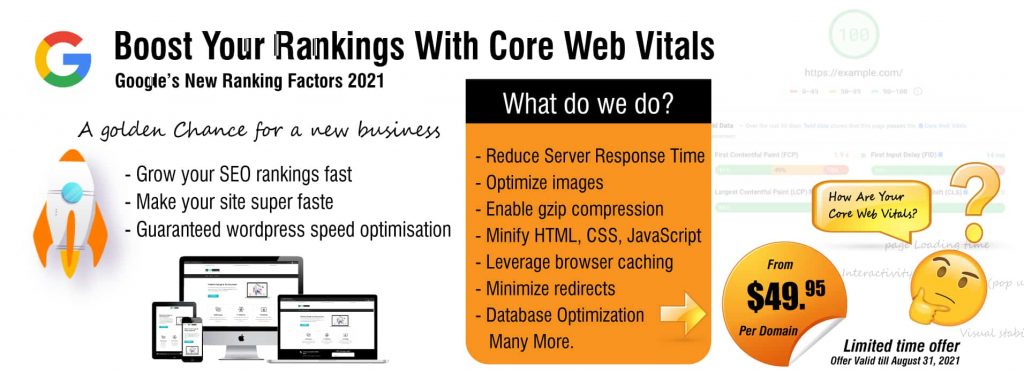The time it takes for a page to load on a user’s screen is referred to as page load time. Let’s look at how website performance optimisation affects the most important aspects of website success:
conversion – The faster the page loads, the higher conversion rates it’ll have
visibility – The time it takes for your website to load has an impact on how easily users can find it. One of the factors that Google considers when ranking websites is website speed.
usability -Customer loyalty is directly influenced by website usability factors such as page speed, load time, and responsiveness to user requests. A user will be more satisfied with your website if it performs well. Building a large customer base and a strong brand requires a great user experience.
After you’ve tested your website’s speed, you can begin optimising it using some common website performance optimization tool. There are numerous website performance optimization techniques to make your website run faster and we’ve compiled a list of the most effective.
-
-
Move your website to a better host
-
Reduce the quantity of JavaScript and CSS files on your computer.
-
Use website caching
-
Implement Gzip Compression
Use prefetching techniques
Page speed is a measurement of how quickly your page’s content loads.
Page speed is sometimes mistaken with “site speed,” which is the page speed for a random sample of a site’s page visits. Page speed is measured in “page load time” (the time it takes for a page to completely show its content) or “time to first byte” (how long it takes for your browser to receive the first byte of information from the webserver).
Google has stated that one of the signals utilised by their algorithm to rank pages is site performance (and thus page speed). Furthermore, research suggests that when Google evaluates page performance, it may be calculating time to first byte in particular. Furthermore, a poor page speed means that search engines can scan fewer pages with their crawl budget, which may have an impact on your indexation.
User experience is also influenced by page speed. As we all must have experienced that pages that take longer to load have a greater bounce rate and a shorter average stay on page. Conversions have also been demonstrated to be harmed by longer load times.





 Our Website Speed Optimisation Services will help you resolve sluggish site difficulties, Core Web Vitals issues, increase your Google PageSpeed Insights score, troubleshoot slow backend issues, optimise Woocommerce checkout speed, and much more.
Our Website Speed Optimisation Services will help you resolve sluggish site difficulties, Core Web Vitals issues, increase your Google PageSpeed Insights score, troubleshoot slow backend issues, optimise Woocommerce checkout speed, and much more.



